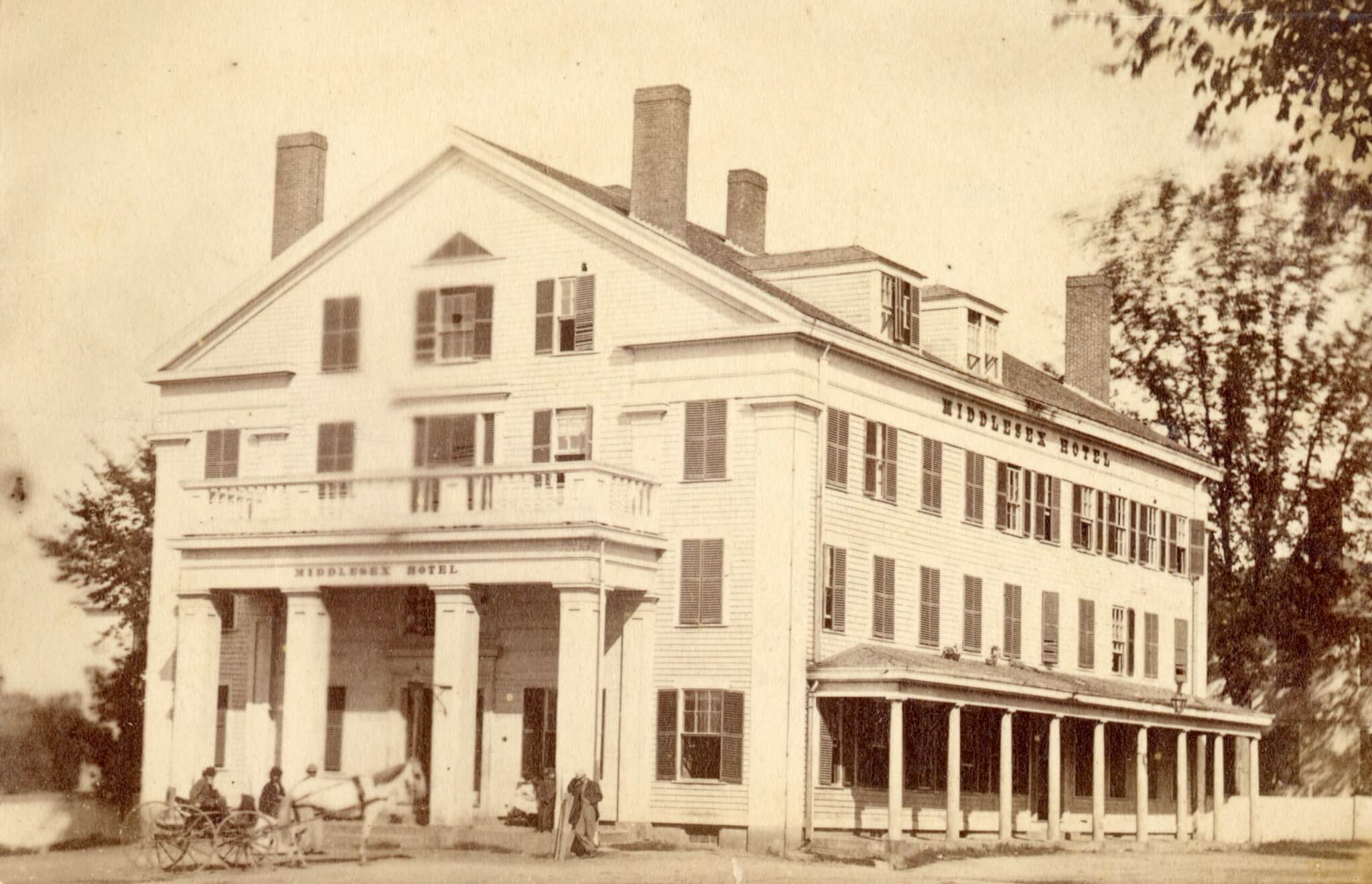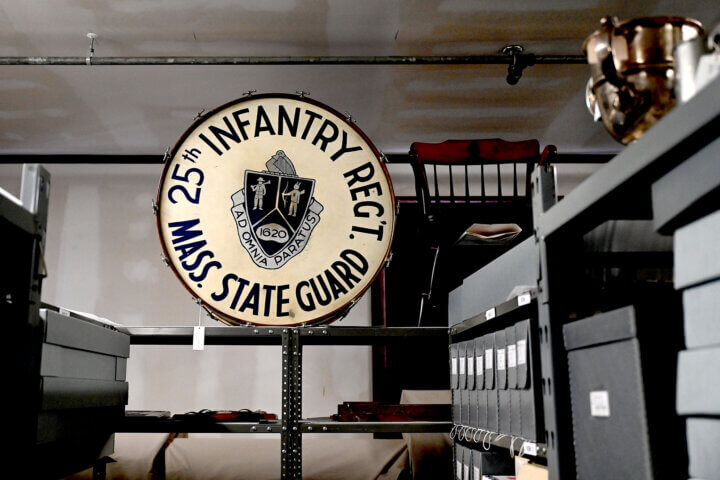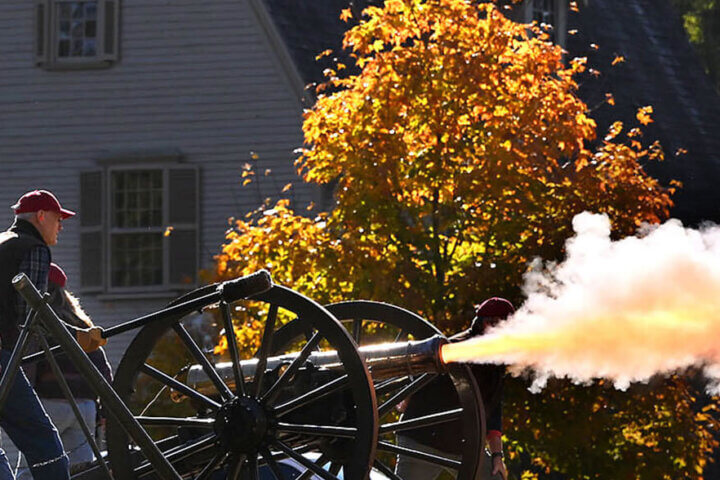Right on Monument Square, across from the Town House, with a clear view of monuments and historical buildings and conveniently located for pedestrians, a lawn sports a few trees and a low memorial to Henry David Thoreau in memory of the night the transcendentalist writer spent in a long-gone jail.
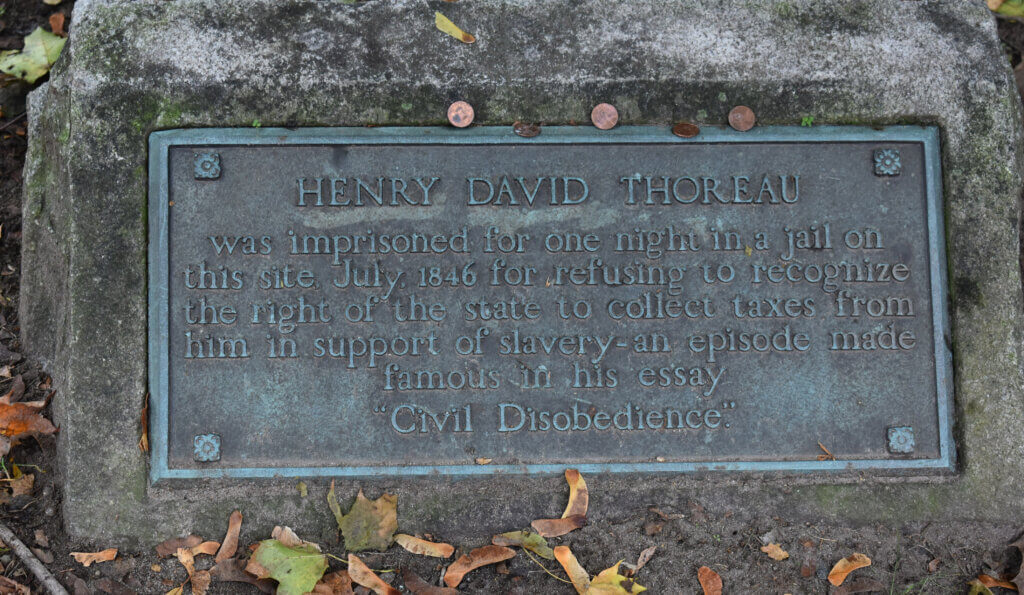
The land is part of a lot which citizens donated to the town after the former Middlesex Hotel fell into disrepair, said Polly Reeve. They tore down the “real blight on the landscape” and specified the land should be used for municipal purposes.
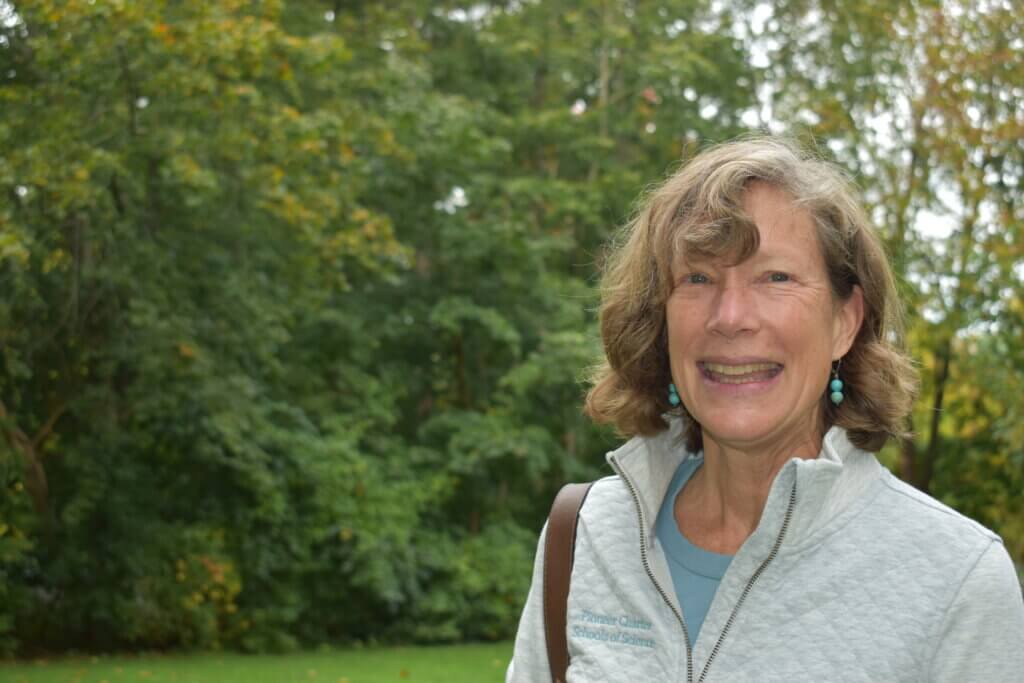
A member of the 250th Permanent Memorial Subcommittee, Reeve and others have been taking a good look at the parcel as plans are made to create a multi-use, multi-purpose installation marking the 250th anniversary of the start of the American Revolution on April 16, 1775.
Community input has been an important part of the planning, with meetings spearheaded by Sasaki, a landscape architecture firm that works on projects large and small throughout the world.
After doing a “whole lot of listening,” the team determined Concord is a symbol for liberty and justice for all, Reeve said. There is an interest in recognizing the unrecognized: women, people of color, the Indigenous.
Concord also needs an outside gathering place. Somewhere for groups to meet, the curious to learn and the hungry to sit and eat lunch, she said.
Adding to the challenge of design planning are the site constrictions. Buried under the sloping lawn is a water retention infrastructure that must be drained every few years. It is in a historic district and will need to blend in. Existing trees and a wetland buffer must be taken into consideration.
Sasaki presented options during a public meeting this fall. The movement is toward trying to include more people, inviting folks in.
“Not necessarily a statue,” Reeve said. As an example, she mentioned Thoreau’s Path on Brister’s Hill, with quotation-bearing granite and bronze markers near Walden Pond.
She would like to see things that bring stories to life, helping to bring people like Concord’s Ellen Garrison, an educator whose father and grandfather were enslaved, into the limelight.
The subcommittee is looking for a preliminary design from the firm by January. Reeve predicts private fundraising and grants will cover the cost of the memorial.
The subcommittee has two other projects in the works.
Working with Concord Public Works, 250 trees will be planted around town at locations to be determined.
The Special Collections of the Concord Free Public Library will benefit too, through Stories of Concord Veterans. Documents from Concord veterans across all wars will be preserved.


